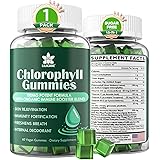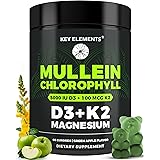The intricate connection between our digestive system and overall well-being has been recognized for centuries in various traditional medicine systems. Modern science is now increasingly confirming what ancient wisdom understood instinctively: the state of our gut significantly influences not just physical health, but also mental and emotional balance. This profound relationship, often termed the gut-brain axis, is a cornerstone of holistic wellness.
As highlighted in the accompanying video with Siddharth Warrier and Sadhguru, the importance of maintaining a clean and healthy gut is paramount. Sadhguru specifically emphasizes the crucial role of avoiding constipation, a condition that might seem minor but can have far-reaching implications for one’s mental state. This insight underscores a fundamental principle in traditional Indian medicine, where gut health is seen as foundational to psychological well-being.
The Ancient Wisdom of Gut Cleansing for Mental Health
Within the venerable systems of Ayurveda, Siddha, and Yoga, a clean digestive tract is not merely a recommendation but a core tenet for optimal health. When individuals present with psychological distress or mental health challenges, the initial approach often involves a thorough internal cleansing, known as ‘purge’ or ‘shodhana’. This isn’t just about emptying the bowels; it’s about resetting the entire system to restore equilibrium.
The goal of such a cleanse is often described as achieving a state where, if one drinks plain water, only clear water should pass through the system, indicating a complete evacuation of waste. This intensive purification was once a routine practice in many cultures, deeply rooted in the understanding that an unhealthy gut could directly manifest as mental dis-ease. It speaks to a holistic view of the body where mental processes are inextricably linked to physical health.
The Gut-Brain Axis: A Modern Scientific Validation
While traditional medicine has emphasized this connection for millennia, contemporary scientific research is now providing concrete evidence for the gut-brain axis. This bi-directional communication highway involves complex interactions between the central nervous system, the enteric nervous system (the nervous system of the gut), and the gut microbiome. The millions of bacteria, fungi, and other microorganisms residing in our digestive tract, collectively known as the microbiome, play a pivotal role in this axis.
These microbes produce a vast array of neuroactive compounds, including neurotransmitters like serotonin and dopamine, which are crucial for mood regulation and cognitive function. Imbalances in the gut microbiome, often referred to as dysbiosis, have been linked to various neurological and psychological conditions, including anxiety, depression, and even neurodegenerative diseases. This reinforces the ancient understanding that a healthy gut microbiome is essential for optimal brain health and emotional stability.
Beyond Constipation: Nurturing Your Gut Microbiome
Sadhguru’s emphasis on avoiding constipation is a powerful, simple lesson with profound implications. Constipation leads to the reabsorption of toxins, inflammation, and an imbalance in the gut flora, all of which can negatively impact mental clarity and emotional regulation. However, maintaining a clean gut goes beyond merely ensuring regular bowel movements; it involves fostering a healthy microbial environment.
Traditional practices did not rely on harsh laxatives that could strip the gut of its beneficial bacteria. Instead, they often utilized specific oils or natural compounds designed to gently lubricate the intestinal tract, facilitating the smooth elimination of waste without compromising the delicate microbial balance. This nuanced approach ensures that while unwanted material is expelled, the essential “microbial quality” of the gut remains intact and robust. Nourishing this microbial ecosystem is key to long-term well-being.
Practical Steps for a Healthy Gut and Mind
Integrating the wisdom of traditional practices with modern understanding can empower individuals to significantly improve their gut health. Prioritizing consistent, healthy bowel movements is a fundamental step, but several other lifestyle and dietary choices can support a thriving gut microbiome and, by extension, a calmer, clearer mind.
- Hydration: Adequate water intake is crucial for digestive motility and preventing constipation. Water helps soften stool and aids the smooth passage of waste through the intestines.
- Fiber-Rich Diet: Incorporating plenty of fruits, vegetables, whole grains, and legumes provides essential dietary fiber. This fiber acts as a prebiotic, feeding beneficial gut bacteria and promoting regular bowel movements.
- Fermented Foods: Foods like yogurt, kefir, sauerkraut, kimchi, and kombucha are rich in probiotics, which are live beneficial bacteria that can replenish and diversify the gut microbiome.
- Mindful Eating: Eating slowly, chewing food thoroughly, and being present during meals can significantly improve digestion and nutrient absorption, reducing strain on the digestive system.
- Stress Management: The gut-brain axis means that stress directly impacts gut function. Practices like meditation, yoga, deep breathing, and spending time in nature can mitigate stress and support gut health.
- Movement and Exercise: Regular physical activity stimulates intestinal muscle contractions, helping to keep things moving and preventing sluggish digestion.
The understanding that a clean and balanced gut is a prerequisite for a healthy mind is a powerful concept. By embracing both ancient wisdom and contemporary scientific insights, we can take proactive steps to support our digestive health, ultimately cultivating greater mental clarity, emotional resilience, and overall vitality. Ensuring optimal gut health is a continuous journey towards holistic well-being.











